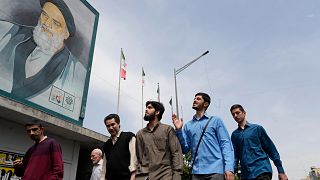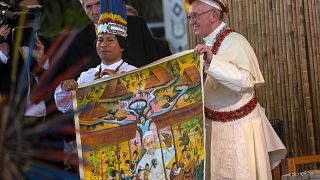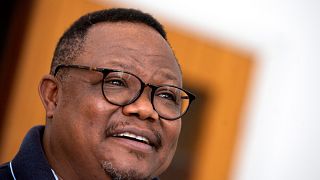Technology
Kenya’s Independent Electoral and Boundaries Commission (IEBC) chairman Wafula Chebukati said in a statement that the country is considering blockchain technology to offer real-time results, as part of reform efforts to enhance the integrity of voting.
He said the technology will be used to enable presidential candidates to securely access results. Blockchain is a distributed-ledger technology that’s used to verify and record cryptocurrency transactions to boost transparency and reduce perceptions of opacity, Bloomberg Technology reports./a>
Based on this update from Kenya's Electoral Commission, the Agency is looking at potential of using Blockchain technology to enable Presidential candidates to securely access results in realtime pic.twitter.com/7iKX8sEkWw
— Samira Sawlani (@samirasawlani) August 20, 2018
Chebukati’s announcement was however met with cynicism and doubt by a section of the population, who have little confidence in the electoral body.
1) Blockchain's scalability problem means it can't be a radical solution to vote rigging in a country as large as #Kenya.
2) Before every new election, some new technology is adopted by IEBC, only for it to be bypassed during the election.
You're being fooled (again) Kenyans. https://t.co/nhVBojiXfd
— Pavel (@pvl0101) August 21, 2018
Flawed
Kenya’s elections have frequently been contested with widespread rigging and irregularities since the country adopted a multi-party democracy in 1991.
Last year, opposition leader Raila Odinga rejected the outcome of two presidential polls with the first annulled by the Supreme Court, which cited massive irregularities.
Violence that accompanied the disputed 2007 election left at least 1,100 people dead and displaced an estimated 600,000 others.
Blockchain already in use
Kenya has a Kenyan Blockchain Association. President Uhuru Kenyatta recently launched a blockchain and artificial intelligence (AI) task force for the purpose of deploying blockchain technologies within the countries existing economic framework. The eleven-member team is mandated with the task of creating a 15-year roadmap that will help Kenya reduce political corruption and so-called “red-tapism”.
The East African country’s government claims it wants to promote and encourage blockchain technology for a wide array of applications, including land registry and voting.
“For Africans with blockchain, we can interact and participate with the rest of the world. You don’t have to be trusted, the system already works for you”, Joseph Mucheru, Kenya’s ICT minister says.
Blockchain is already in use in Kenya, an example being the research partnership between Twiga Foods and IBM, a partnership involves granting microcredit loans to 220 stall retailers across Kenya using a blockchain-based financing system.
There were reports of Sierra Leone using blockchain for its presidential elections in March 2018. However, the actual use was limited to an external observer engaged for the election that experimented with its own blockchain solution in one of the districts.













Go to video
Ties between China and Kenya "upgraded to a new level", say leaders during Ruto's state visit
Go to video
President Ruto signs $950M deal in China, strengthens Kenya–China ties
Go to video
Kenya: Ant smuggling suspects set to be sentenced on May 7
Go to video
Robot waiter becomes a star attraction at Havana restaurant
Go to video
Drones, AI cars and delivery robots: Gitex Africa tech show closes its third edition
Go to video
Drones transform life, industry in south China's Shenzhen